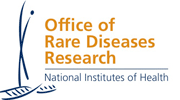G1D - Glucose transporter type 1 deficiency syndrome 
1. G1D 101- An Introduction
3. Common questions after the diagnosis of G1D
5. Movement disorders in G1D
a. Can G1D be treated?
At this time, there is no cure for G1D. Therefore, treatment is directed toward preventing or controlling symptoms. Because anti-seizure medications typically do not work in patients with G1D, the ketogenic diet has been shown to be effective in controlling seizures in most patients with the condition, therefore improving overall cognitive development. Unfortunately, some degree of seizure activity may continue even while on the diet and patients may still continue to show other neurological and developmental symptoms of the disorder.
G1D patients afflicted by movement disorders without seizures also benefit from the ketogenic diet and the effect of the diet on brain metabolism is probably identical to that in patients with epilepsy.
b. What is the ketogenic diet and how does it work?
The ketogenic diet is a high fat, low carbohydrate diet which is usually prescribed by a physician and carefully monitored by a dietician. Ketones are formed when the body uses fat instead of glucose for its source of energy. In patients with G1D and certain other seizure disorders, the ketone bodies pass into the brain and replace the glucose as an energy source helping to eliminate seizures.
c. Are there side effects from the ketogenic diet?
Common but easily treatable side effects of the diet include constipation, poor weight gain, and possible kidney stones. It is important to talk to your doctor or clinical nutritionist about how to reduce these possible side effects. Also, because the diet does not provide all the necessary vitamins and minerals of a well balanced diet, a vitamin supplement may be indicated. Blood zinc and selenium levels can drop on the ketogenic diet but this can be prevented with supplementation under professional supervision.
d. Are there any experimental treatments that may help control seizures in G1D?
Alpha-lipoic acid (thioctic acid) has been shown to assist glucose transport in test tube cells. Therefore, in some cases, alpha-lipoic acid supplements have been suggested. However, significant gastrointestinal side effects such as intolerance may result.
e. Are there any medications or supplements to avoid?
There is no definitive proof that certain medications should be avoided. However, reports indicate that phenobarbital, the most commonly prescribed anti-seizure drug for infants and children, has been shown not to improve seizure control, and in some cases, actually worsens a child's seizures and symptoms.
Methylxanthine (caffeine) found in coffee, tea, chocolate and some cola-flavored and "energy boosting" beverages, has also been reported to block glucose transport in laboratory experiments. Therefore, it is recommended that individuals with G1D avoid caffeinated beverages and foods rich in caffeine.
DISCLAIMER
All the information contained herein was made possible by the collaboration between The Child Brain Foundation, Dr. Juan M. Pascual, and The National Institute of Health's Office of Rare Diseases Research (Collaboration, Education and Test Translation Program).
You may not commercially exploit any of the contents. Any redistribution or reproduction of part or all of the contents in any form is allowed and encouraged and proper acknowledgement is urged. To properly acknowledge the information contained here, please add the following to any excerpt or copy:
"We acknowledge The Child Brain Foundation, www.childbrainfoundation.org, as the organizer, Dr. Juan Pascual as the author, and The National Institute of Health's Office of Rare Diseases Research (Collaboration, Education and Test Translation program, CETT Program) as the sponsor of this information."
About the Collaborators






